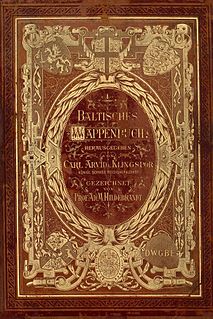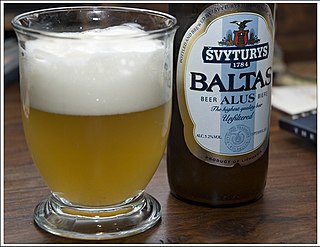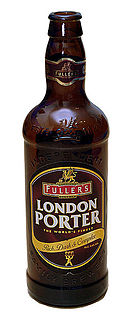See also
| This disambiguation page lists articles associated with the title Baltica. If an internal link led you here, you may wish to change the link to point directly to the intended article. |
Baltica, or Baltika, may refer to:
| This disambiguation page lists articles associated with the title Baltica. If an internal link led you here, you may wish to change the link to point directly to the intended article. |
Baltic may refer to:

The Baltic states, also known as the Baltic countries, Baltic republics, Baltic nations, or simply the Baltics, is a geopolitical term, typically used to group the three sovereign states in Northern Europe on the eastern coast of the Baltic Sea: Estonia, Latvia, and Lithuania. The term is not used in the context of cultural areas, national identity, or language, because while the majority of people in Latvia and Lithuania are Baltic people, the majority in Estonia are Finnic. The three countries do not form an official union, but engage in intergovernmental and parliamentary cooperation. The most important areas of cooperation among the three countries are foreign and security policy, defence, energy, and transportation.

Carlsberg A/S is a Danish multinational brewer. Founded in 1847 by J. C. Jacobsen, the company's headquarters is located in Copenhagen, Denmark. Since Jacobsen's death in 1887, the majority owner of the company has been the Carlsberg Foundation. The company's flagship brand is Carlsberg. Other brands include Tuborg, Kronenbourg, Somersby cider, Neptun, Russia's best-selling beer Baltika, Belgian Grimbergen, and more than 500 local beers.
Scottish & Newcastle plc was a brewing company headquartered in Edinburgh, Scotland, which expanded from its home base to become an international business with beer volumes growing almost tenfold.

European route E 67 is an E-road running from Prague in the Czech Republic to Helsinki in Finland by way of Poland, Lithuania, Latvia, and Estonia. It goes via Prague, Wrocław, Warsaw, Kaunas, Panevėžys, Riga, Tallinn and Helsinki.
Kremerata Baltica is a chamber orchestra consisting of musicians from Baltic countries. It was founded by Latvian violinist Gidon Kremer in 1997. Gidon Kremer is an artistic director of Kremerata Baltica.

Lithuanian Railways is the national, state-owned railway company of Lithuania. It operates most railway lines in the country.

MS Regina Baltica is a cruiseferry owned by the Estonian shipping company Tallink. She was built in 1980 as Viking Song by Wärtsilä Perno shipyard, Finland for Rederi Ab Sally, one of the owners of the Viking Line consortium. She has also sailed under the names Braemar and Anna Karenina.
Baltika Brewery is the second largest brewing company in Europe and the leader of the Russian beer market with over 38% market share. It is headquartered in St. Petersburg and owned by the Danish brewing company Carlsberg.

The Baltic or Baltic German nobility was the privileged social class in the territories of today's Estonia and Latvia. It existed continuously since the Northern Crusades and the medieval foundation of Terra Mariana. Most of the nobility were Baltic Germans, but with the changing political landscape over the centuries, Polish, Swedish and Russian families also became part of the nobility, just as Baltic German families re-settled in e.g. the Swedish and Russian Empires. The nobility of Lithuania is for historical, social and ethnic reasons often separated from the German-dominated nobility of Estonia and Latvia.

The rail transport system in Estonia consists of about 1,200 kilometres (750 mi) of railway lines, of which 900 kilometres (560 mi) are currently in public use. The infrastructure of the railway network is mostly owned by the state and is regulated and surveyed by the Estonian Technical Surveillance Authority.

In Russia, beer is the second most popular alcoholic drink after vodka, seen by many as a less harmful alternative. The average Russian person drank about 12.5 liters of pure alcohol in 2010, with vodka accounting for more than five liters and beer about four liters.

Baltic Beverages Holding is a brewing company owned by Carlsberg Group. It is a significant operator in the brewing industry in Russia, Ukraine, the Baltic countries and Kazakhstan, most notably holding a controlling stake in Baltika Breweries.

Rail Baltica is an ongoing greenfield railway infrastructure project to link Finland, Estonia, Latvia, Lithuania and Poland with a European standard gauge rail line. Its purpose is to provide passenger and freight service between participating countries and improve rail connections between Central and Northern Europe. Furthermore, it is intended to be a catalyst for building the economic corridor in Northeastern Europe. The project envisages a continuous rail link from Tallinn (Estonia) to Warsaw (Poland). It consists of links via Riga (Latvia), Kaunas and Vilnius (Lithuania). Rail Baltica is one of the priority projects of the European Union: Trans-European Transport Networks (TEN-T).

The Helsinki-to-Tallinn Tunnel is a proposed undersea tunnel that would span the Gulf of Finland and connect the Finnish and Estonian capitals by train. The tunnel's length would depend upon the route taken: the shortest distance across would have a submarine length of 50 kilometres (30 mi), making it the longest undersea tunnel in the world. It has been estimated that the tunnel, if constructed, will cost €9–13 billion. It may open some time after 2030. The European Union has approved €3.1 million in funding for feasibility studies.

Uldis Augulis is a Latvian politician and a member of the Union of Greens and Farmers. He holds a bachelor's degree in financial management from the University of Latvia. He was the former Welfare Minister from 12 March 2009 to 3 November 2010, the Minister of Transport from 3 November 2010 to 25 October 2011 and the acting Minister of Justice from March to April 2010. Augulis was elected to the Saeima on October 2, 2011.

The Baltika Group is an Estonian fashion brandhouse and retailer that operates Monton, Mosaic, Baltman, Bastion and Ivo Nikkolo retail concepts. Since May 2013 Baltika also represents Blue Inc London fashion brand in the Baltics. Group brands are represented in Estonia, Latvia, Lithuania, Russia, Belarus, Ukraine, Serbia and Germany. Baltika is listed in the Tallinn Stock Exchange.

Porter is a style of beer that was developed in London, England in the early eighteenth century. It was well-hopped and dark in appearance owing to the use of brown malt. The name originated from its popularity with street and river porters.

Ülemiste station is a railway station in the Ülemiste district of Tallinn, the capital city of Estonia. It is approximately 500 metres from Tallinn Airport, to which it has been connected by a tramline since 2017.

The city of Pärnu in Estonia had a railway station from 1896 to 2018, although the location of the station changed several times. There are plans to re-establish a passenger train service with a new high-speed rail line, Rail Baltica, running from Tallinn to Poland via Pärnu.